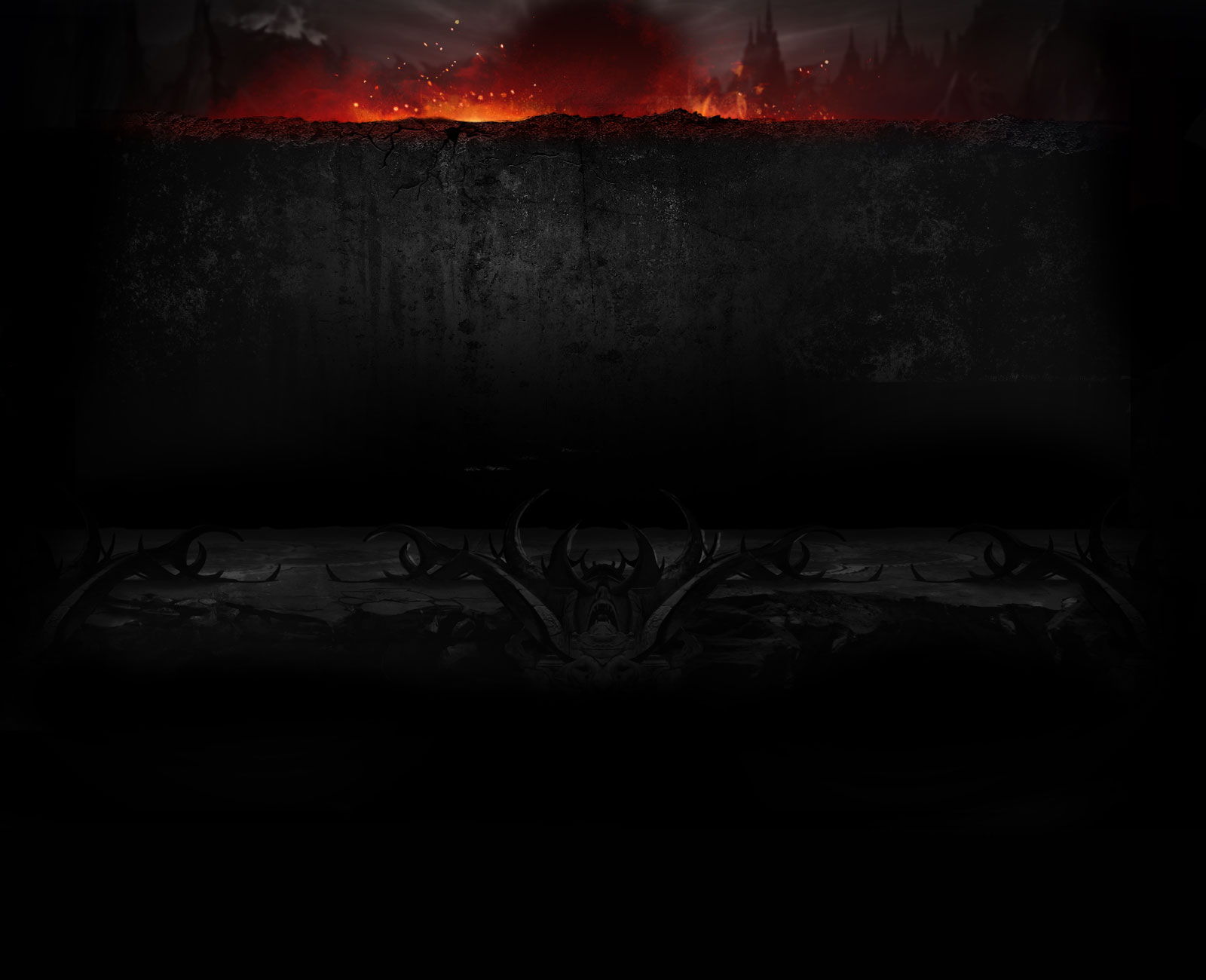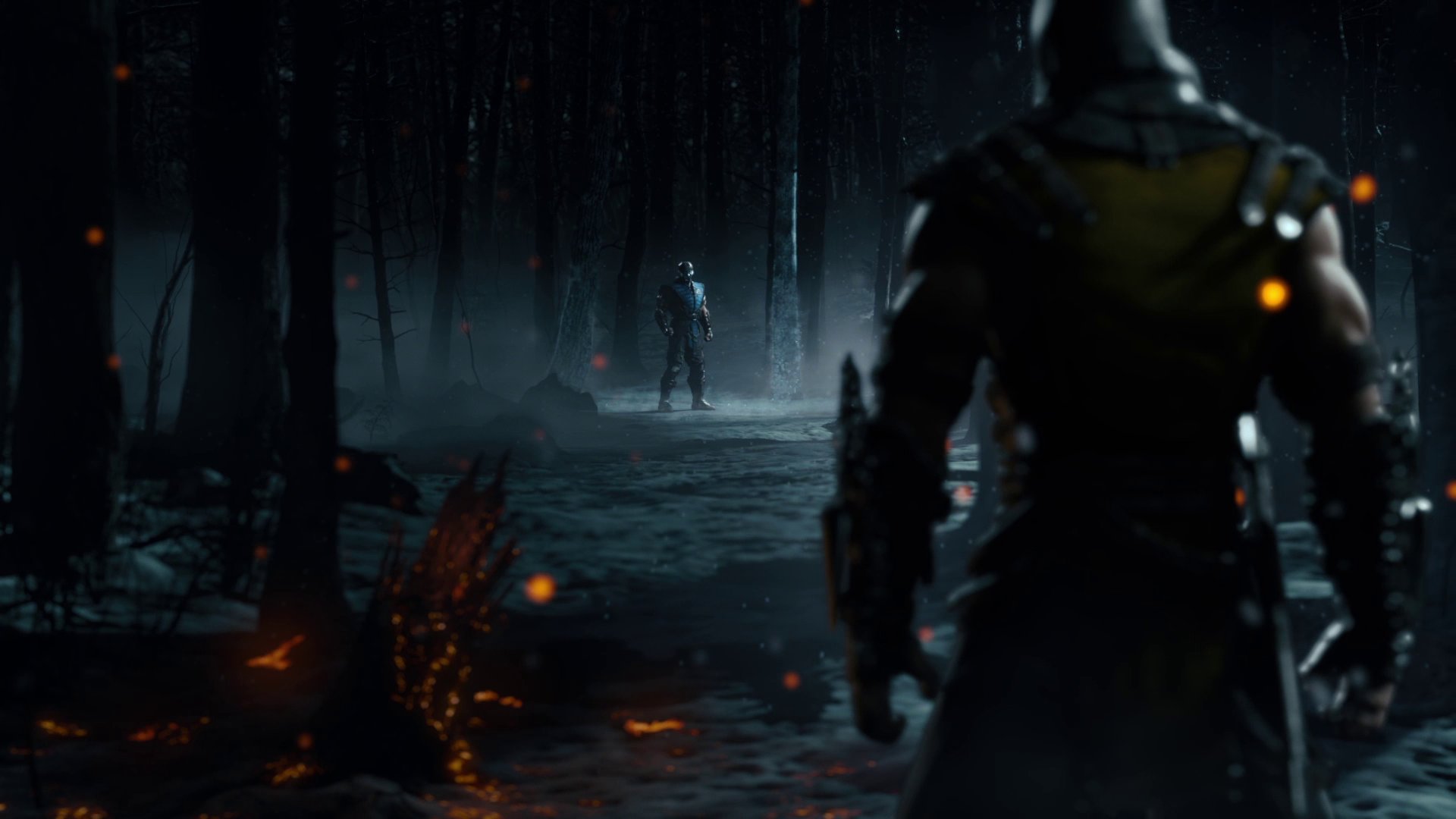Hell's Mascot
Noob
I'd like to put together a quasi-democratic tier list for the kast of Mortal Kombat X. We all hate tier lists for our own reasons, but we all want to see them for some form of secret validation, so this is my proposal for putting together a tier list that makes sense and isn't totally arbitrary. The proposed tier list (and I do mean tier list, not a ranking) would be a representation of the opinions of the members of Test Your Might. Let me know if you'd like me to make such a thing.
This is how it would work:
There will be four categories open for voting by forum members. The name of the fourth category will be chosen by popular decision, but the first three categories encompass criteria that I find necessary to be considered for the assessment of the 'viability' of any character in any fighting game. These criteria need some explication, but hopefully you will agree they are universally paramount to any character being 'good.' The categories are as follows:
For any character to be good in the objective sense, they need to have options. By this I mean that in a given situation, the character needs to have the tools that allow the player more than one decision about what to do.
This one is pretty obvious, but mobility cannot be overlooked. Under this category will be aspects of play like walk speed, run speed, jump arc, startup and recovery frames, et cetera.
Ah, matchups. 5/5, 6/4, 7/3... Who makes the decisions about theoretical first-to-tens? Why does anyone care? Because people like to know their odds. But beside that, if you're going to make a tier list, this is the most straightforward way to do it.
People who respond to this thread can posit their own choice of topic for judging characters. Damage output, meter use, gimmicks, safe strings, whatever. I will likely choose the most popular (i.e. the most unanimously liked) topic. Also, please let me know if the first three topics are bogus; I haven't completely made my mind up about them.
Making the List
The topics are already ranked in order of importance, and thus each topic is scaled such that the first topic has the most weight, followed be the second, etc. So it would be as follows:
1. Options __/50
2. Mobility __/40
3. Matchups __/30
4. You Decide __/20
See how you're grading each character based on the categories, and each category is already scaled?
There are some complications, though. When it's done this way, a sort of arms race phenomenon occurs. I can make results private to discourage this, but I want it to be an openly decided tier list. Thus, every voter must understand that half of the total possible score is average. It's not like the United States educational letter grade system. In this vote, half points = average.
Another complication is that the fourth category might end up being more important than the second or third category (or the first if I totally missed a general concept). This will change the scaling, so the points each category is out of is not set in stone, but rather only demonstrative.
The matchups category is kind of interesting because you will actually rate that based on how many members of the cast you feel your character has a favorable or neutral matchup against. This includes the mirror match (if that seems dumb, I can explain why it is also necessary). So if you feel that your character only has a favorable/neutral matchup against Mileena, Goro, and Takeda, then you can put 3/30. (I do realize that there are only 29 characters at the moment, but I'm giving each character a free 1 because I like nice numbers.)
After all characters have been 'graded' in the voting process, which would be open for a limited period of time (because the game changes rapidly in its nascent stages), all that happens is I total each character's points and then place them in a tier based on the final number. The tier ranges are tentative, but for example:
S+ : 130-140
S : 120-129
A+ : 110-119
A : 100-109
B+ : 90-99
B : 80-89
C+ : 70-79
C : 60-69
D+ : 50-59
D : 40-49
F: 0-39
TL;DR - I'd like to make a tier list where everyone votes on the performance of characters in particular categories. The points the chars. get will determine which tier (above) they fall into. The tier ranges can be tweaked depending on where most of the kast ends up.
That should be everything. Hopefully it all makes sense, and if not, leave a question or concern. I'm just testing the waters here to see if people would enjoy this sort of thing to be made. Or if moderators would enjoy closing it.
This is how it would work:
There will be four categories open for voting by forum members. The name of the fourth category will be chosen by popular decision, but the first three categories encompass criteria that I find necessary to be considered for the assessment of the 'viability' of any character in any fighting game. These criteria need some explication, but hopefully you will agree they are universally paramount to any character being 'good.' The categories are as follows:
1. OPTIONS
For any character to be good in the objective sense, they need to have options. By this I mean that in a given situation, the character needs to have the tools that allow the player more than one decision about what to do.
Characters in fighting games have different play styles; some of the commonly discussed play styles include zoning, setups/vortices, pressuring, rushdown, et cetera. If a character has options, they are not restricted to one playstyle: they have multiple avenues available to them in a match.
In any match, a character needs to have the toolset that could allow the player to deal with their opponent's play style. For example, if a player is being relentlessly zoned out by opponent projectiles, the character would have a very tough time if they only had one option in adjusting to the zoning game. Without options to utilize in a matchup, there is no possibility of adaptation. Without adaption, the player does not have any choice but to continue playing exactly the same way until defeat.
Options are also essential for footsies and for opening up your opponent. The less obvious it is what you'll do next, the more difficult it is for them to play against you.
In any match, a character needs to have the toolset that could allow the player to deal with their opponent's play style. For example, if a player is being relentlessly zoned out by opponent projectiles, the character would have a very tough time if they only had one option in adjusting to the zoning game. Without options to utilize in a matchup, there is no possibility of adaptation. Without adaption, the player does not have any choice but to continue playing exactly the same way until defeat.
Options are also essential for footsies and for opening up your opponent. The less obvious it is what you'll do next, the more difficult it is for them to play against you.
Having options is not only important in the neutral game, but also when you are pressuring your opponent or ending a combo.
This sounds like it comes down to 'only characters with 50/50's are good,' but that's not the case. Options can allow more than just mixups: setups, baiting, finishing a combo in multiple ways (e.g. in a way that puts your opponent in the most disadvantageous position or leaves you with a hard knockdown), et cetera.
Options are what make the meta. In a hypothetical perfectly played game, where execution is at tool-assisted levels of perfection, having options and making the right decisions with those options is what would still give you the edge over your opponent.
This sounds like it comes down to 'only characters with 50/50's are good,' but that's not the case. Options can allow more than just mixups: setups, baiting, finishing a combo in multiple ways (e.g. in a way that puts your opponent in the most disadvantageous position or leaves you with a hard knockdown), et cetera.
Options are what make the meta. In a hypothetical perfectly played game, where execution is at tool-assisted levels of perfection, having options and making the right decisions with those options is what would still give you the edge over your opponent.
2. MOBILITY
This one is pretty obvious, but mobility cannot be overlooked. Under this category will be aspects of play like walk speed, run speed, jump arc, startup and recovery frames, et cetera.
The greater a character's mobility, the greater their capability in the neutral game. It allows them to move around the stage and to perform moves quickly enough to overwhelm opponents. Players are drawn to faster characters for a reason. If your move comes out faster than your opponent's move, you win that exchange. If you can dictate the pace of the match and the space on the stage and easily maneuver around your opponent, it makes things easier. If your character is fast, some mistakes can be recovered from before being punished. If a character is slow, that may not be the case; it may be that a slower character needs a great deal of reads to beat an opponent because their moveset does not allow playing on reaction against a faster character. Mobility does not increase a character's potential to win; rather, it reduces the constraints on a character. This seems reductionist, but in a purely objective treatment of a character, mobility must be considered.
3. MATCHUPS
Ah, matchups. 5/5, 6/4, 7/3... Who makes the decisions about theoretical first-to-tens? Why does anyone care? Because people like to know their odds. But beside that, if you're going to make a tier list, this is the most straightforward way to do it.
]If you're trying to rank the characters against one another, knowing who is purported to win against who (basically creating a matchup matrix) is crucial. It is amenable to quantitatively analyzing how much better one character is than another.
4. YOU DECIDE
People who respond to this thread can posit their own choice of topic for judging characters. Damage output, meter use, gimmicks, safe strings, whatever. I will likely choose the most popular (i.e. the most unanimously liked) topic. Also, please let me know if the first three topics are bogus; I haven't completely made my mind up about them.
Making the List
So how am I going to make this tier list? The actual important thing that I haven't mentioned yet?
What would happen is that each topic would be voted on using numbers. Voters would, for each character, provide a whole number for each category that they would attribute to that character, with higher numbers signifying a character being better.
The topics are already ranked in order of importance, and thus each topic is scaled such that the first topic has the most weight, followed be the second, etc. So it would be as follows:
1. Options __/50
2. Mobility __/40
3. Matchups __/30
4. You Decide __/20
See how you're grading each character based on the categories, and each category is already scaled?
There are some complications, though. When it's done this way, a sort of arms race phenomenon occurs. I can make results private to discourage this, but I want it to be an openly decided tier list. Thus, every voter must understand that half of the total possible score is average. It's not like the United States educational letter grade system. In this vote, half points = average.
Another complication is that the fourth category might end up being more important than the second or third category (or the first if I totally missed a general concept). This will change the scaling, so the points each category is out of is not set in stone, but rather only demonstrative.
The matchups category is kind of interesting because you will actually rate that based on how many members of the cast you feel your character has a favorable or neutral matchup against. This includes the mirror match (if that seems dumb, I can explain why it is also necessary). So if you feel that your character only has a favorable/neutral matchup against Mileena, Goro, and Takeda, then you can put 3/30. (I do realize that there are only 29 characters at the moment, but I'm giving each character a free 1 because I like nice numbers.)
After all characters have been 'graded' in the voting process, which would be open for a limited period of time (because the game changes rapidly in its nascent stages), all that happens is I total each character's points and then place them in a tier based on the final number. The tier ranges are tentative, but for example:
S+ : 130-140
S : 120-129
A+ : 110-119
A : 100-109
B+ : 90-99
B : 80-89
C+ : 70-79
C : 60-69
D+ : 50-59
D : 40-49
F: 0-39
TL;DR - I'd like to make a tier list where everyone votes on the performance of characters in particular categories. The points the chars. get will determine which tier (above) they fall into. The tier ranges can be tweaked depending on where most of the kast ends up.
That should be everything. Hopefully it all makes sense, and if not, leave a question or concern. I'm just testing the waters here to see if people would enjoy this sort of thing to be made. Or if moderators would enjoy closing it.
Last edited:






